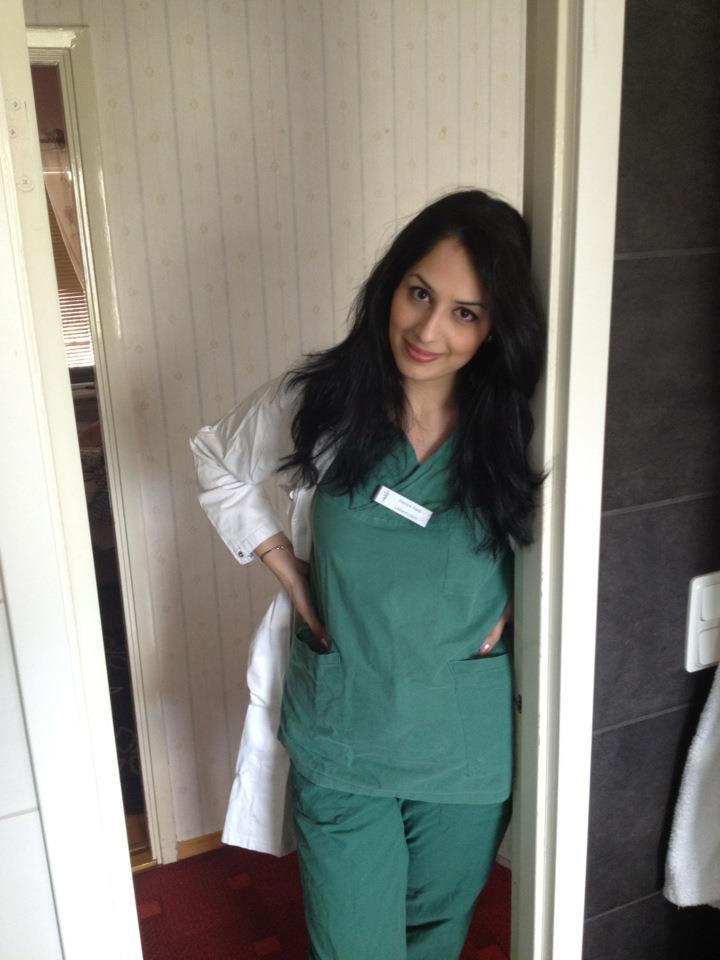Written by Kanya Said
Very often, when I listen to doctors practicing in Kurdistan, I get complaints about how much work they have to do and how the stress affects their work. The hospitals are overloaded and there aren’t enough doctors to give patients the proper help they need. When entering a hospital one can see a broad mix of patients and their relatives waiting to meet the doctor and I am sad to say that most often the patients are called in to the physician several at a time.
This is a result of the pressure on doctors. The large amount of people and the mixture of severity of illness among those who seek medical advice is an indication that common people in Kurdistan have little basic medical knowledge.
The issue is that there is poor basic schooling of the population, especially in remote areas like the villages. The community in general doesn’t receive the necessary basic health education that is needed to help reduce pressure on the health system and lighten the enormous burden on doctors. This results in a large amount of people being admitted to hospital for simple health conditions that could be treated at home, while others with serious conditions that need dire medical attention can be neglected until it’s too late or more medical care is needed than otherwise would be if the condition was treated earlier. In both cases the consequences are that the doctors cannot give the correct therapy to those who are in most need of it.
I find that the right way to handle this problem is to increase basic medical knowledge among the population and with that aim I am writing a ‘Manual of Medicine’ in Kurdish. This will be a book that should be available in every Kurdish home, and used as a tool to increase the prevention of many easily preventable diseases and also a first point of call when trying to understand certain symptoms.
The purpose of this book is to raise awareness about the most common medical conditions and diseases in Kurdistan and how the general population can prevent certain illnesses and deal with symptoms if they arise. The book gives information about basic health conditions, different diseases and their symptoms. There are tips on how you can treat yourself from home and the best self-care according to symptoms. Key information about when patients should seek professional help when suffering from certain symptoms will also be included to ensure the safety of readers and minimize misunderstandings. The most important aspect of this book is that, not only is it written in lay terms for the general population to comprehend, but it is also written in language that most who can read and write in Kurdistan can understand. There will be a focus on the most common diseases and illnesses in Kurdistan and Kurdish communities.
This handbook will lead to a higher awareness for different medical conditions, recognition of an illness’ severity and, most importantly, it provides a tool for knowing when you should go to the doctor. The ultimate outcome will be to take some of the pressure off our hospitals and healthcare professionals and make the patients feel safer because they have a better understanding of basic medicine.
The idea is that you should be able to look up the symptoms or diseases you think you’re suffering from to find out what illness it might be related to and whether it is worth seeing a doctor or attending hospital. It’s like a dictionary about the most common diseases; a ‘Manual of Medicine for the people’ and, most importantly, it’s written in Kurdish.
In the future I plan to develop the idea and write a book that cover a lot rarer and severer diseases that may not be encountered so much. The level will be much deeper and I will use specialist medical advice from doctors within each field to have the latest information about the updated treatments that Kurdistan can offer. This way the patient knows exactly what to expect when meeting a doctor for treatment and the doctors can discuss alternative therapy plans at a level that the patient understands. It will benefit the individual as much as the health care professional and the system they work in. But that is the heavy version of today’s project that I hope to present in the best way possible as soon as possible.
For now I want to highlight the importance of the distribution of the ‘Manual of Medicine’ and that it should be given out to every Kurdish home. I will be working on ways to make the book available to all people and communities. I am also aware of its limitations; however I hope this book can become a catalyst for further general medical education to communities in Kurdistan.
The handbook is currently in the process of being finalized and it will be published in the near future.
Watch this space!


